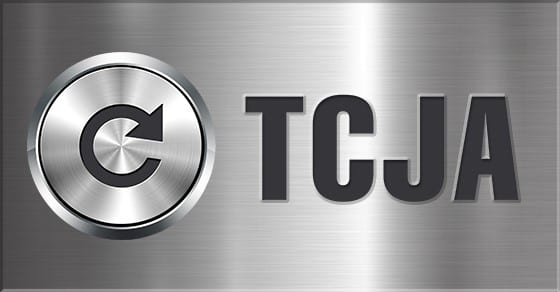 The Tax Cuts and Jobs Act (TCJA) introduced a variety of tax benefits for businesses, including slashing corporate income tax rates, temporarily reducing individual rates, and it established a new 20% deduction for certain pass-through income. However, the TCJA also placed limits on several tax breaks, including the amount for the interest expense deduction.
The Tax Cuts and Jobs Act (TCJA) introduced a variety of tax benefits for businesses, including slashing corporate income tax rates, temporarily reducing individual rates, and it established a new 20% deduction for certain pass-through income. However, the TCJA also placed limits on several tax breaks, including the amount for the interest expense deduction.
Small Businesses are Exempt
Before you get into the nitty-gritty of the interest limit, you’ll need to determine if you qualify for the small business exemption. Businesses whose average annual gross receipts for the prior three years are $25 million or less aren’t subject to the limit and, with a few rare exceptions, may deduct all their business interest expense.
Bear in mind that some related businesses must combine their gross receipts for purposes of the $25 million test. I.e., you can’t avoid the limit by splitting a larger business into separate entities.
How it works
Under the TCJA, if your gross receipts surpass the $25 million threshold, then your annual deduction for business interest expense is limited to the sum of:
- Your business interest income,
- 30% of your adjusted taxable income, and
- Your floor-plan financing interest (for dealers in some motor vehicles, boats and farm equipment).
That is, aside from floor-plan financing, your net interest expense — interest expense less interest income — is deductible up to 30% of adjusted taxable income. Note, however, that the limit doesn’t apply to investment interest.
Your adjusted taxable income is your taxable income without regard to:
- Nonbusiness income,
- The amount of any net operating loss deduction,
- Business interest expense or income,
- The 20% pass-through deduction, and
- Depreciation, amortization or depletion.
The last adjustment expires at the end of 2021. In other words, beginning in 2022, adjusted taxable income will be reduced by the amount of depreciation, amortization and depletion, limiting business interest deductions even further.
Disallowed interest expense may be carried forward indefinitely and deducted in subsequent years, subject to the same limits.
Opting Out for Real Property and Farming Businesses
Some real property businesses, such as development, construction, management, leasing and brokerage, may choose not to apply the business interest limit. The compromise is that these businesses must forgo 100% bonus depreciation and depreciate specific assets over longer periods.
Once made, the election is irrevocable. A similar election is available for farming businesses.
Do Pass-Through Entities Qualify?
In general, the limit applies at the entity level. However, due to other considerations, we recommend you consult with your tax advisor if you are a pass-through entity.
For a partnership, any interest above the limit is passed through to the partners and carried forward until it can be offset against “excess taxable income” allocated to the partners. Excess taxable income is essentially partnership income in each year that’s sufficient to support interest deductions beyond the partnership’s actual interest expense for that year.
For an S corporation, excess interest is carried over at the entity level until the corporation generates sufficient income to absorb it.
What now?
It is recommended that you estimate the impact of the business interest limit on your tax bill if your average annual gross receipts exceed $25 million. Depending on its significance, talk with your tax advisor to consider strategies for lessening the impact, such as shifting from debt to equity financing. If you have a real property or farming business, weigh the costs and benefits of opting out of the interest limit with your tax advisor. S/he can help your business plan through the changing tax laws.


